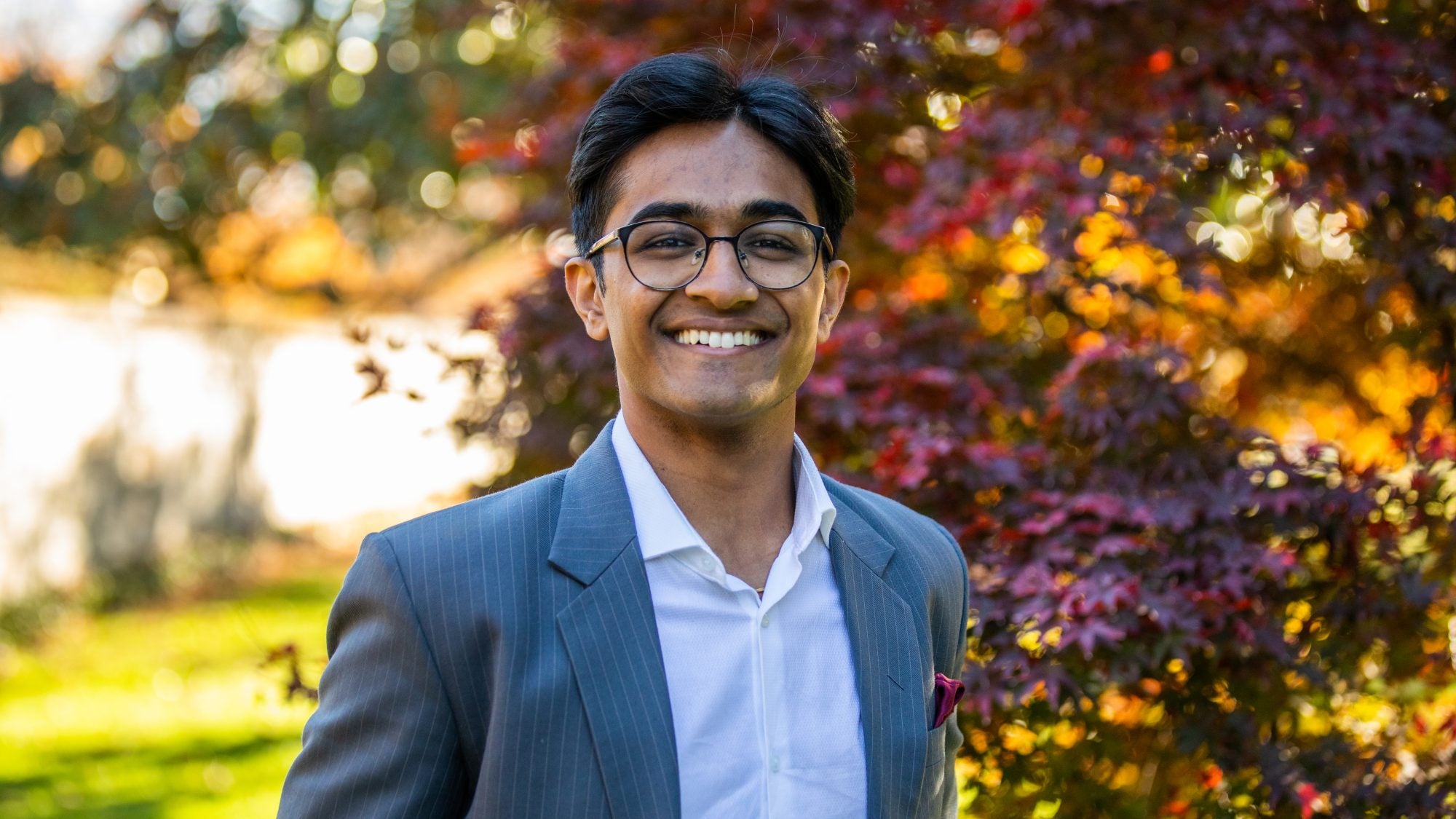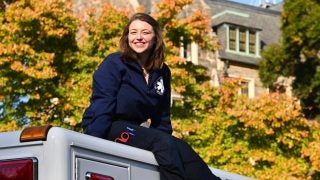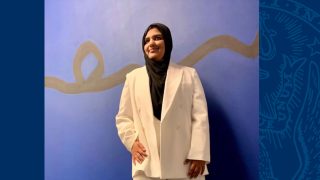Technology and International Development
As a science, technology and international affairs major in the Walsh School of Foreign Service (SFS), Gupta immersed himself in international development studies. He was eager to learn how government agencies, global nonprofits and other international development institutions could impact local economies through technology. He also minored in Mandarin Chinese and computer science.
In addition to his studies, Gupta joined Georgetown Global Consulting (GGC), a student-run nonprofit that provides consulting services for NGOs. While there, he trained project managers and helped introduce a methodology that streamlined how GGC operated and met client needs.
During his first year at Georgetown, Gupta worked at the university’s Center for Research and Fellowships, where he met Lauren Tuckley, the center’s director. Not long into his employment there, Tuckley urged him to pursue one of the fellowships her center advises on.
“I could tell he was already thinking about life after Georgetown and about how he could work through the fields of technology and international relations to make a difference in the world — this is what got me excited about him: he’s nothing if not driven to pursue mission-centered work,” Tuckley says. “To date, I place him in the top two students, among a number of simply outstanding students, who have worked for me.”
From Research to Policy
As a research assistant for the Georgetown University Initiative on Innovation, Development and Evaluation, Gupta collected data to inform allocation of community development funds in Kenya.
As an intern at the World Bank, he got a close-up view of international development in practice. After a few stints at other international affairs research organizations, he recognized the opportunity for multilateral institutions to support and scale new technologies and startups aimed at advancing the common good.
In 2021, Gupta received the Paul F. Pelosi Scholarship, which provides funding for a full-time summer internship in public service. He interned at the U.S. State Department’s Office of West African Affairs, where he authored the department’s first issue paper on Nigeria’s digital economy.
As part of his research, Gupta interviewed a Zimbabwean entrepreneur who had created a startup that provided millions of Africans with identification services, but who faced an uphill battle in scaling and receiving funding. He saw other local entrepreneurs face the same challenges.
“The international development sector is slowly embracing digital technologies, but those technologies are often imported from the West and implemented top-down,” Gupta says. “These entrepreneurs are building tools that can drive enormous change, especially in developing communities, and I aspire to help development institutions embrace this.”
Troy D. Fitrell, the U.S. ambassador to Guinea and the former director of the State Department office, was impressed by Gupta’s contributions and said that his paper helped inform U.S. policy on Nigeria’s digital economy in advance of the annual U.S.-Nigeria Bilateral Commision.
“Atharv embraced the mission of the Bureau and Department and matched the high standard of excellence of the team,” Fitrell says. “With expertise in technology and international development, Atharv brought his distinct perspective to our office and leveraged his own knowledge to guide many policy decisions. I have maintained a relationship with Atharv because he has an intellectual curiosity that is important to engage, and he continues to provide useful insight.”
After Rhodes, Gupta hopes to build a career in international aid, guiding institutions to embrace the possibilities of technology, just as he learned to do growing up.
“If technology has the potential to promulgate agency across the world, then my primary question for the Rhodes and Oxford community is where that agency is needed most,” Gupta says. “To surround myself with changemakers who are ‘fighting the world’s fights’ means to surround myself with the most complex problems that humanity faces, to understand where this niche of innovators could make the greatest difference when equipped with the right support.”



